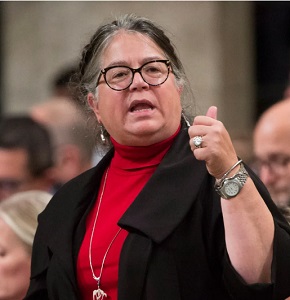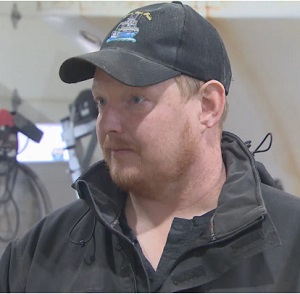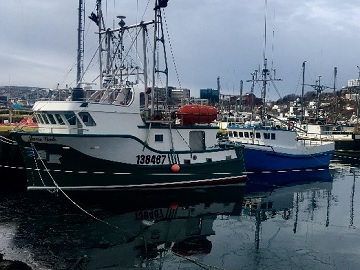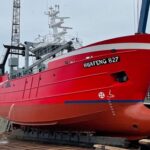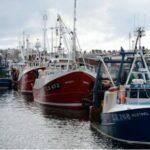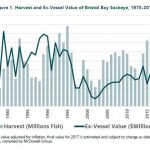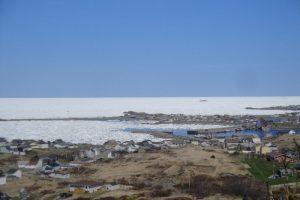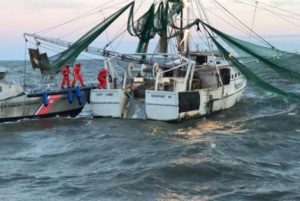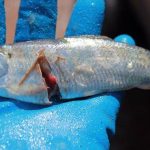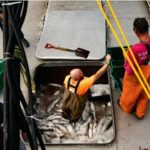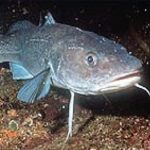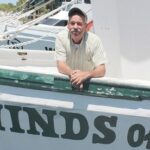Tag Archives: FFAW
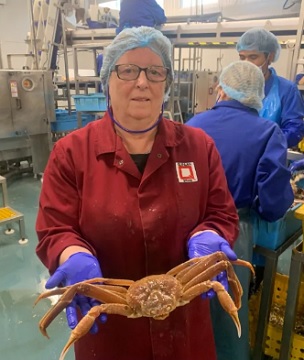
Crab plant workers have punched their time in spades this season, and are being called heroes
Workers at seafood processing plants in Newfoundland have been working all summer long in an effort to make sure snow crab quotas for the shortened 2023 season are met, and they say they’re ready for a break. “This season has been one of the hardest seasons that we have worked here, because we had to do a lot of crab in a short period of time,” Louise Power, a floor supervisor at the Quinlan Brothers Ltd. plant in Bay de Verde, told CBC News Tuesday. She worked at the plant for 46 years, and has had four days off since May. “We all got through it, and made the season work,” she said. “Right now, [I’m] happy as a lark.” >>click to read<< 11:50
FISH HARVESTERS UNION CLAIMS HEALTHY COD POPULATIONS
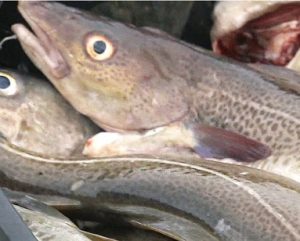 The Fish, Food and Allied Workers Union (FFAW) has received reports confirming the presence of healthy cod populations near our shores. The union has been advocating for an increase in the total allowable catch for several years, but their efforts have been largely unsuccessful. The Department of Fisheries and Oceans (DFO) takes a cautious approach when determining quotas, despite the fact that the pressure on the cod stock from harvesting activities is minimal. FFAW Secretary Treasurer, Jason Spingle, is urging the Canadian government to conduct a thorough stock survey to obtain more comprehensive scientific data. >click to read< 10:22
The Fish, Food and Allied Workers Union (FFAW) has received reports confirming the presence of healthy cod populations near our shores. The union has been advocating for an increase in the total allowable catch for several years, but their efforts have been largely unsuccessful. The Department of Fisheries and Oceans (DFO) takes a cautious approach when determining quotas, despite the fact that the pressure on the cod stock from harvesting activities is minimal. FFAW Secretary Treasurer, Jason Spingle, is urging the Canadian government to conduct a thorough stock survey to obtain more comprehensive scientific data. >click to read< 10:22
Fish plants are busy with crab, so here’s how harvesters are selling their catch of cod and are getting creative to sell it
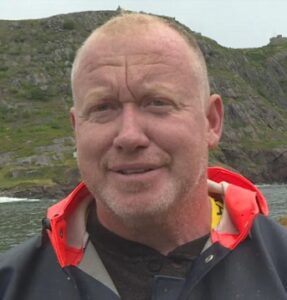 “We’re down here today filleting our fish because we have nowhere to sell our fish,” said fisherman Wade King. “None of the fish plants were buying, so we got a restaurant in Mount Pearl [buying], King Cod.” Snow crab harvesters kept their boats tied up at the beginning of the fishing season in April to protest the price set for their catch. After a six-week delay, the fishery began at the same price that had been set to start the season. But the delay means plants are still busy processing crab when they’d normally be processing cod. King said he’s still without a buyer three weeks into the cod fishery, which is something he’s never seen before. >click to read< 13:14
“We’re down here today filleting our fish because we have nowhere to sell our fish,” said fisherman Wade King. “None of the fish plants were buying, so we got a restaurant in Mount Pearl [buying], King Cod.” Snow crab harvesters kept their boats tied up at the beginning of the fishing season in April to protest the price set for their catch. After a six-week delay, the fishery began at the same price that had been set to start the season. But the delay means plants are still busy processing crab when they’d normally be processing cod. King said he’s still without a buyer three weeks into the cod fishery, which is something he’s never seen before. >click to read< 13:14
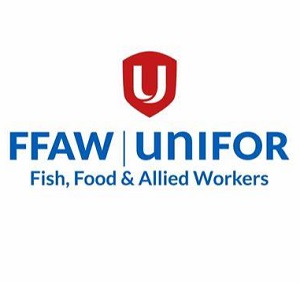
DFO Rolls Over Cod Quota, Fails to Use All Available Data for Assessment
Today, the Department of Fisheries and Oceans (DFO) announced a rollover to the Maximum Allowable Harvest (MAH) for the 2J3KL Northern Cod Stewardship fishery. The rollover comes as a surprise to harvesters, who requested an increase this year in line with the health of the stock and commercial needs for both harvesting and processing. Harvesters consider Northern Cod to be one of the best fisheries for both quality and catch rates, and both harvesters and processors are looking for more product this year. >click to read< 17:25
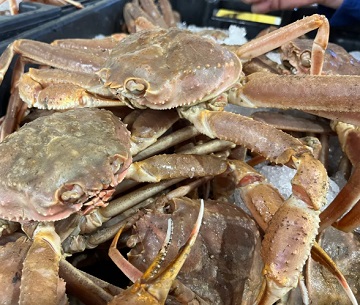
Crab catch price creeps up and plants ramp up as delayed N.L. harvest enters third week
The protests and the rhetoric have somewhat subsided, and the catch price has improved slightly, as Newfoundland and Labrador’s long delayed and controversy-riddled snow crab harvest enters a third week. “It’s been a very smooth start largely due to the state of readiness that producers have been in now for eight weeks,” Jeff Loder, executive director of the Association of Seafood Producers, said Friday. But there’s rarely smooth sailing in the fishing industry, with tensions continuing to simmer between the ASP and the Fish, Food & Allied Workers union, which represents harvesters and plant workers. Some outstanding issues include trip limits for fishing vessels to ensure an orderly harvest and maintain the highest quality, changes in the long-standing policy,,, >click to read< 17:37
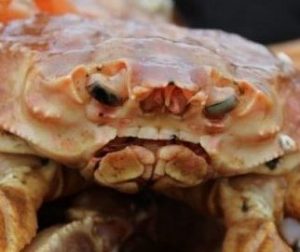
Deal reached in Newfoundland and Labrador crab fishery, harvesters to start fishing
A bitter standoff that shut down Newfoundland and Labrador’s lucrative snow crab fishery for nearly six weeks came to an end on Friday. The union representing inshore fishers and plant workers announced its negotiating team had reluctantly signed a deal with the group representing seafood processors to start the fishery. The deal guarantees prices would not fall below $2.20 a pound, the price fishers were protesting in the first place. Shortly after the union announced the agreement, the provincial government issued a news release saying the deal was the culmination of a meeting that day between the union, the processors association and Premier Andrew Furey, who thanked the two parties for working together. >click to read< 07:56
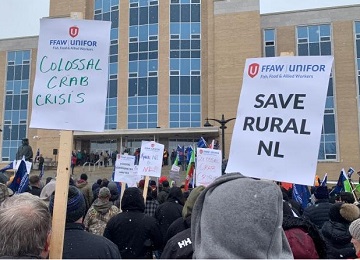
Crab fishery stalemate creating fear and uncertainty in Newfoundland fishing towns
The days of mounting fear and unease in Humber Arm South, N.L., feel like 1992, when the federal government ended the province’s cod fishery after stocks had collapsed, said Humber-Shears, the town’s mayor. “I was a teenager during that time, but it’s just that eerie kind of feeling. It’s an eerie silence,” she said. “People are really starting to fret over, ‘Where am I going to go to find work? How am I going to feed my family? How am I going to pay my mortgage?”‘ Crab fishers in Newfoundland and Labrador are refusing to fish after prices were set in early April at $2.20 a pound, a sharp drop from last year’s opening price of $7.60 a pound. The fishers say it’s not enough to make a living, and so far they haven’t budged. >click to read< 10:03
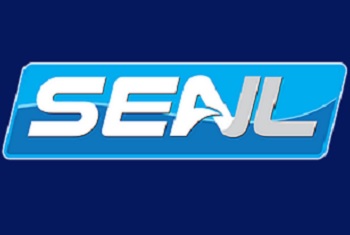
Pretty over his head: FFAW leader unaware inshore fishery excluded from Competition Act
Seaward Enterprises Association of Newfoundland and Labrador (SEA-NL) says the president of the FFAW-Unifor is over his head in calling for the Competition Bureau of Canada to investigate the inshore fishery when much of the sector is excluded from the act. “It’s shocking that Greg Pretty doesn’t know that the only industry in Canada that’s pretty much excluded from the federal Competition Act is the inshore fishery,” says Ryan Cleary, SEA-NL’s Executive Director. “It’s no wonder the six-week tie-up has been such a circus with nothing to show for it.” Only fish pricing in this province is excluded from the Federal Competition Act. SEA-NL wrote Prime Minister Justin Trudeau in May 2022 (letter below) to request that then-proposed amendments to the Competition Act (which were to tackle anti-competitive conspiracies between competitors that hurt workers) include fish pricing. >click to read< with the letter. 20:35
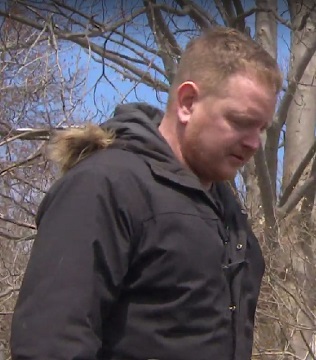
Snow crab harvesters ‘at wits’ end’ during protest outside union building – suggest fisheries minister should resign
Snow crab harvesters say their patience with the Fish, Food & Allied Workers union has run thin, and made their voices heard at a protest outside its St. John’s office Thursday. Around 100 protesters stood in the office’s parking lot to seek response from leadership, tired of a lack of updates from the union. When it was clear that FFAW leadership wasn’t going to make an appearance at the protest, fisherman Jason Sullivan addressed the crowd. “They’re the biggest bunch of cowards you ever see  in your life. They won’t come and tell us what’s going on…. They’re gonna say ‘sit tight and keep waiting and keep waiting.’ Waiting for what?” Sullivan said. “It just goes to show, you know, the complete lack of ability to negotiate on the FFAW’s behalf. I mean I wouldn’t let them negotiate my phone bill.” 2 Videos, >click to read< 17:47
in your life. They won’t come and tell us what’s going on…. They’re gonna say ‘sit tight and keep waiting and keep waiting.’ Waiting for what?” Sullivan said. “It just goes to show, you know, the complete lack of ability to negotiate on the FFAW’s behalf. I mean I wouldn’t let them negotiate my phone bill.” 2 Videos, >click to read< 17:47

Tensions rise in snow crab negotiations as producers make talks with union public
The head of Newfoundland and Labrador’s Association of Seafood Producers is now putting negotiations with the Fish, Food & Allied Workers union out in the open, saying the union mischaracterized meetings between the two groups. The two sides met Wednesday to discuss what the FFAW called a final counter offer from the ASP in the battle for better snow crab prices for harvesters. The offer surfaced in a >news release from the union on Wednesday night<, saying it was made by the ASP. On Thursday morning, ASP executive director Jeff Loder said that statement is untrue. Now, after the FFAW’s press release, Loder says his association will be making any negotiations with the union public. >click to read< 15:14
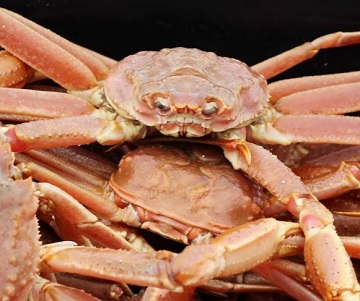
Snow crab harvesters face final offer in search of better prices
The Fish, Food & Allied Workers Union and the Association of Seafood Producers have reached what the FFAW calls a final counter offer in their search for better snow crab prices. Details were shared on the union’s Facebook page at around 9:30 p.m. NT, over two hours after a meeting between the two parties began. The proposal sets $2.20 per pound as the minimum price of snow crab for the rest of the season. There is an opportunity for increases, which would be tied to the Urner Barry Index, which dictates the market price. The proposal, according to the FFAW’s Facebook page, is as follows: >click to read< 07:55
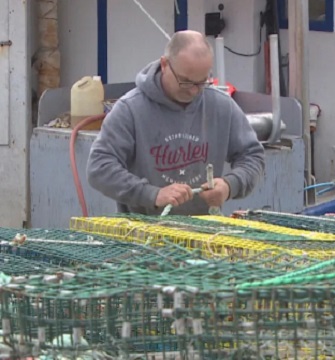
After tentative crab deal falls apart, fishermen settle in to wait for a better price
St. John’s crab fisherman Keith Boland said he and his fellow harvesters won’t accept a deal that sticks to $2.20 per pound, as decided by the provincial price-setting panel. “The $2.20 is still the major issue, and it will be, time going forward,” he said. On Friday, Fish Food & Allied Workers president Greg Pretty said a tentative deal had been reached with the Association of Seafood Producers: the $2.20 price would be locked in for the season, rather than the association requesting a lower price if the market continues to decline. But to prevent a glut of crab arriving at plants for processing, the deal would also include trip limits, with monetary penalties for fisherman who catch more than the trip limit. Calling it a union “slush fund,” Boland said fishermen won’t accept that. >click to read< 09:45

ASP calls out alleged ‘intimidation’ of crab harvesters who want to fish for $2.20 per pound
The 2023 snow crab season started with a promise between the fisheries union and the processors association to work together — something akin to the Hatfields and McCoys striking a truce. It did not last long. Now three weeks into the snow crab fishery, not a single pound of the 10-legged species has been taken from the water, as fishermen protest what they consider a catastrophic price of $2.20 per pound. On Tuesday, Association of Seafood Producers executive director Jeff Loder called on the fish harvesters to get their boats in the water before it was too late. The FFAW held a news conference of its own on Tuesday where president Greg Pretty said he was disappointed by Loder’s comments. “What he’s outlined here is a recipe for absolute economic disaster for the province,” Pretty said. >click to read< 07:54

Forget fall snow crab fishing; seafood consultant says it didn’t work before for Newfoudland and Labrador
It was an idea proposed by fish harvester Jason Sullivan. As Newfoundland and Labrador crab fishing boats remain tied up, their captains saying they can’t afford to fish for this year’s price of $2.20 a pound, the Bay Bulls inshore fisherman suggested waiting to fish in the fall might mean better prices. His theory is that holding off to fish until fall might give the market time to absorb the leftover inventory from 2022, and be a prime time to deliver fresh crab to consumers for the Thanksgiving and Christmas season. >click to read< 09:59
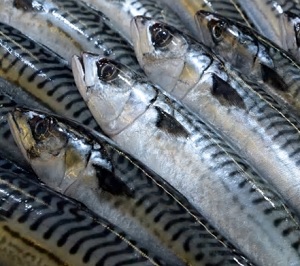
FFAW wants mackerel fishery re-opened
On Thursday, Mar. 30, 2022, the Department of Fisheries and Oceans Canada (DFO) issued a release announcing there would be no directed commercial or bait fishing for southern Gulf spring herring and the closure of the Atlantic mackerel commercial and bait fisheries in Atlantic Canada and Quebec. Now in 2023, Fish, Food, & Allied Workers (FFAW) is calling on the government to reopen the Atlantic mackerel fishery, stating that Newfoundland and Labrador communities shouldn’t bear the burden of this decision. “The biggest problem is that the fishery was closed when it should not have been,” said Courtney Glode, Communications Officer with FFAW. The U.S.A. announced in March that they will proceed with the commercial fishery in 2023, on the East Coast stock shared with Canada; however, an announcement on whether or not the moratorium will be lifted in Canada has not yet been made. >click to read< 10:07

‘What we’re looking for is a fair shake’: Newfoundland inshore crab fishers resume pop-up protests around St. John’s
They didn’t get a clear answer from the Department of Fisheries and Oceans on Monday, so inshore crab harvesters are holding “pop-up” protests again today, March 28, in St. John’s. Jason Sullivan and the 3L protestors say the crab stocks in the zone should be assessed as one biomass rather than as separate inshore and offshore stocks. That way, the protestors say, the inshore would be treated the same as the offshore fleets, using the same exploitation rate formulas if the crab stocks are growing. >click to read< 14:52
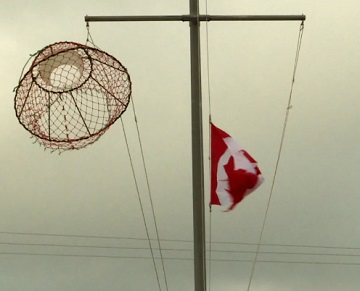
Crab harvesters take protest inside St. John’s hotel as price-setting meetings continue
Newfoundland and Labrador’s crab fishermen resumed their protest Wednesday, calling for a quota increase and changes to the federal government’s fisheries management. Dozens of harvesters descended on a Fisheries and Oceans Canada office in the east end of St. John’s early Wednesday morning, with some using their vehicles to block traffic from coming in or out. Some used symbols of the fishery to protest, like a crab pot placed on the building’s flagpole. Fisherman Jason Sullivan said he and his colleagues are calling for changes to the precautionary approach framework that separates the inshore fishery of Zone 3L from the offshore fishery. >click to read< 16:44
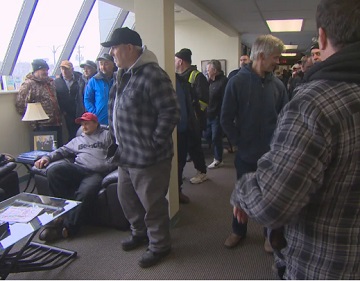
Snow crab fishermen protest quota allocations on first day of price-setting
About 100 snow crab fishermen descended Monday on a St. John’s hotel, where officials had begun setting crab prices for the season, to protest a management system and quotas they say need an overhaul. The protest, at the Sheraton in downtown St. John’s, centred on a new precautionary approach designed to protect stocks, implemented in December by the Department of Fisheries and Oceans, which manages inshore and offshore crab stocks differently. Bay Bulls fisherman Jason Sullivan says the change leaves them with less to catch. “These guys are at 30 per cent of their original quotas, and they need an increase,” Sullivan said Monday. “They’re catching their quotas in one single day.… . >click to read< 21:42
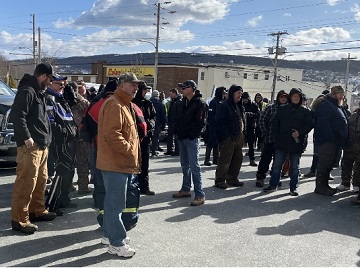
Protesting Fish Harvesters Interrupt Crab Price Setting Negotiations
The protesters fish in 3L, the area from Cape Freels to the southern Avalon. Instead of being one biomass, DFO has created two biomasses which protesters say leaves the inshore sector with less and the larger offshore boats with more. They accuse the union, the FFAW, of weak representation on the issue. Harvester Keith Boland says they’re upset about the way crab quotas are split. He says they have issued with the precautionary approach being taken and the way in which the department is dividing the biomass into inshore and offshore. “Years ago, there was no ‘inside 25 mile’….the crab moved in and the crab moved out,” He laments. “We’re not getting much science now.” >click to read< 13:22
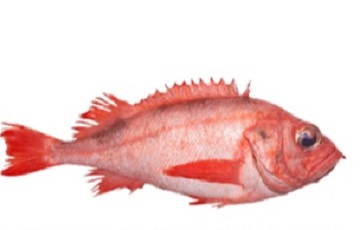
Over a Million Bucks for Bruce – Offshore Companies Get Leg-Up from DFO
This week, news broke that DFO spent untold millions completing two weeks of science work for redfish on the Mersey Venture, a 200-foot factory freezer trawler owned by Mersey Seafoods and part of the offshore lobby group, the Atlantic Groundfish Council headed by Bruce Chapman. Go on, ‘by. Surely the Union’s not out complaining about the government doing more science work when that’s what they’re going on about half the time? In an effort to simplify the complex history behind the issue, I’ll give readers some background. In a nutshell, DFO Science is directly subsidizing corporate offshore fisheries development at the expense of coastal communities and the owner-operator fishery. >click to read< 10:32

Atlantic mackerel population continues to decline a year after fishery moratorium
The Atlantic mackerel population is continuing to decline after a decade of falling numbers, according to a federal assessment presented to industry and environmental groups in Halifax this week. According to the 2022 assessment, mackerel stock remains in the “critical zone” — where serious harm is occurring — and the average number of fish reaching spawning age is only 27 per cent of what it was between 1969 and 2011. “The amount of young fish entering your population has been rather low in the last couple of years. That’s concerning,” Elisabeth Van Beveren, a biologist with the federal department of Fisheries and Oceans, said. In Newfoundland and Labrador, seafood companies and fishermen have claimed for years that DFO has it all wrong because mackerel are plentiful around their coast. >click to read< 15:32
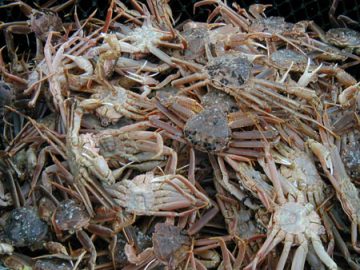
New leaders of FFAW and ASP pledge to work together for 2023 snow crab season
The Fish, Food & Allied Workers union and the Association of Seafood Producers have long butted heads over issues related to the fishing industry but say they’re facing historic challenges this season and want to avoid any problems from the outset. “In light of the challenges we are facing this year, we have agreed that our best approach is to collectively discuss the challenges the crab fishery is facing and to seek support from both levels of government to ensure that we have a successful crab fishery in 2023,” said Paul Grant, board chair of the seafood producers’ board, in a press release ahead of the media availability. >click to read< 11:41
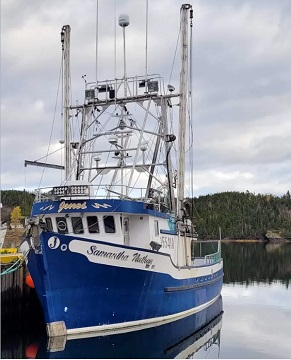
Left-over inventory and inflation could take a bite out of N.L. snow crab prices this year
Trevor Jones has been in the fishing business long enough to know you can’t predict the success of any year until the last pot is hauled and the nets are stored. Jones owns a 65-foot longliner, F/V Samantha Nathan, carrying on the family business that was started by his father. These past few years, snow crab has become the most important catch. Last year crab accounted for just over half the revenue for his enterprise. The record high prices, even with a drop to $6.15 a pound from $7.60 at the start of the season, helped buffer against the cancellation of the mackerel fishery and the no-go for capelin. >click to read< 10:10
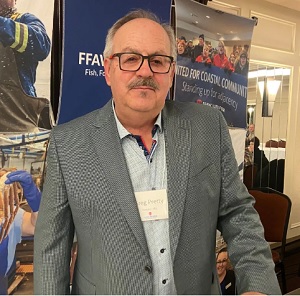
FFAW elects Greg Pretty as new union president
The Fish, Food and Allied Workers Union (FFAW) has a new president. In a secret ballot Thursday at the Comfort Inn in St. John’s, Greg Pretty walked away with the top job. “Thanks to everybody in the room today, particularly those who put their faith in me and chose me to be the leader of this incredibly historic, important union,” Pretty said during his victory speech. “I bring experience and gumption to get things done. But most importantly, I have a robust network of dedicated individuals behind me.” >click to read< 09:26
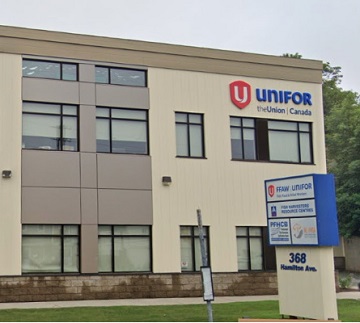
FFAW Declares Long-Time Critic Ineligible for Presidency
The FFAW has come out swinging in response to its decision not to accept the candidacy of Jason Sullivan for president of the union. Sullivan, a long-time critic of the union and one-time member of the rival union FISH-NL, calls it a dark day for Newfoundland and Labrador, and for democracy. That leaves current FFAW negotiator Greg Pretty and west coast businessman Dave Callahan as the only two candidates. The executive committee favours Pretty to succeed Keith Sullivan as president. >click to read< 22:37
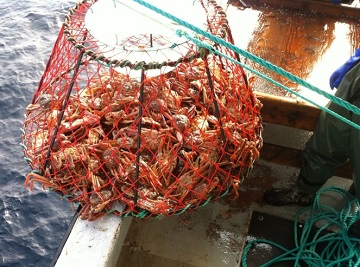
FFAW, N.L. government team up in push back against lobster, snow crab being labeled foods to avoid
Monterey Bay Aquarium’s Seafood Watch program which runs what it calls a science-based seafood recommendation list to inform consumers, chefs, and business professionals, placed all Canadian lobster and snow crab on an “avoid” list because of what the group calls a potential impact for North Atlantic right whales to become entangled in fishing gear. But Jason Spingle, secretary treasurer of the Fish, Food and Allied Workers (FFAW), says the snow crab and lobster recommendation is “totally unfounded.” Spingle said of the hundreds of harvesters he has heard from, none have actually seen a right whale while fishing. What’s more, Spingle said, he only knows of two sightings in Newfoundland waters, neither during lobster fishing season and zero reports of entanglements. >click to read< 07:37






